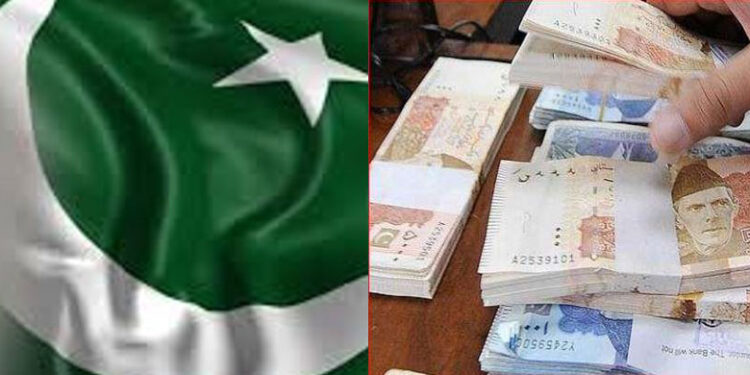Pakistan’s present crisis is the worst in political terms not only due to the polarised polity but also because the state is weaker and more fractured than it ever was. Hence, even a direct military intervention (like in 1999 or 1977) will not help. The crisis is a direct consequence of the establishment’s prolonged involvement in politics and proof of its failure.
Economy and politics are intertwined. Any diagnosis or remedy which ignores this basic fact is bound to be flawed. The intervention has destroyed the capacity of all institutions to perform even to meet the bare minimum requirements of a functional state. The biggest issue is that the Pakistani state was never so dysfunctional.
The economic crisis is the worst we are experiencing. Why? There are three aspects to consider:
From September 1997 to October 1998, the Pakistani rupee dropped by 27.2% against the USD. Since June 2021, the rupee has dropped by 32%.
While our domestic debt is high, it is mostly external (debt/currency) crises that have led to severe stress in the emerging markets. They can print local currency (yes, it is inflationary) but they cannot print dollars. They need dollars to repay loans. Pakistan’s gross external financing needs, calculated by adding current account deficit and external debt repayments, for the next four years will be $152bn – according to the IMF – compared to $71.6bn in the last three years. That is, twice as much. As a % of GDP, the average was 8.1% for the past three years, and the average will be more than 10% for the next 4 years.
The third different aspect this time is that “friendly” foreign powers that helped us in the past no longer have sufficiently large stakes in the region to bail us out.
The era of extracting geo-strategic rents is over.
The above three aspects should make it clear that it is different this time. While I agree that improving productivity is key to changing our future in the long run, the difficult part is how? There are no easy answers. But we must deal with the urgent matters first.
From September 1997 to October 1998, the Pakistani rupee dropped by 27.2% against the USD. Since June 2021, the rupee has dropped by 32%.
The scale and magnitude of the crisis demand that before we attempt to provide a solution, there has to be clear recognition at the highest levels of state of both the scale and the poor capacity of the state to manage it. There is little evidence of that.
I feel Pakistan may ultimately ask for debt rescheduling because even if the flows from the World Bank and the Asian Development Bank materialise. Pakistan’s net external flows (fresh loans minus repayments) will be negative. When the net inflows turn negative (as happened during the 1980s) in Latin America, a big debt/currency crisis becomes highly likely as it happened in many developing countries in the past. So what should we do?
The first step is for the real powers to understand that this time it is different and we need a combined effort of all stakeholders to agree on a minimum agenda of
(a) seeking rescheduling by presenting a united front,
(b) accepting that while boosting exports is the long-term solution, attracting foreign investments is an indispensable part of the solution, and
(c) attracting investments will only remain a dream if Pakistan is viewed by the rest of the world as a religious extremist country and a politically unstable nuclear power.
In short, the establishment and all political parties must decide, in their own interests, that this is the time for a complete reset because there is no other option.
SOS to the State of Pakistan

- Advertisement -
- Advertisement -
